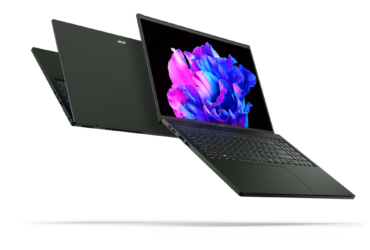Intel says it will build a fleet of Level 4, autonomous vehicles for testing in the US, Israel and Europe. We’re likely to see fruits of its labour later this year, as it plans to put 100 of these babies on the road.
Level 4 autonomous is defined as vehicles able to handle most driving situations on their own, while the ultimate Level 5 is the aspirational level where a vehicle is fully autonomous.
Audi recently rolled out its fourth generation A8 premium sedan, which is the first production model in the world to be Level 3 class. The stunning sedan boasts AI Traffic Jam Pilot—its driver assistance technology which boasts unprecedented autonomy in traffic jams.
Autonomous cars can use various techniques to operate including radar, laser light, GPS, ultrasonic sensors, odometry and more.
It’s easy to understand why autonomous cars are the future. Self-driving cars can potentially reduce traffic collisions caused by human-driver error, like delayed reaction time, tailgating, aggressive driving, distraction and DUI (driving under influence).
Autonomous cars can also potentially reduce labour costs, help passengers be more productive, assist people with disabilities or the elderly.
It can promote higher speed limits, smoother and safer rides, minimise traffic congestion and increase capacity per hour, per lane.
It’s no secret that major automakers are working on prototype and production autonomous vehicles, including the most talked about Tesla Motors, Mercedes-Benz, Audi, General Motors, Nissan, Renault, Toyota, and even tech companies like Google, Uber, and Apple.
Intel, isn’t wasting anytime to grab a piece of the action, announcing the acquisition of Israel-based Mobileye for USD15.3 billion in March. Intel predicts the self-driving market will be worth over USD7 trillion. The company also said it will spend USD250 million over the next two years on the development of self-driving vehicles.
Mobileye’s proprietary EyeQ5 high performance computer vision processor is responsible for processing and interpreting input from the 360-degree view vision sensors. It works in tandem with Intel CPU and FPGA technologies that form the Central Computing Platform of the autonomous vehicle.
At CES 2017, Intel together with BMW Group and Mobileye announced that a fleet of 40 autonomous BMW vehicles will be on the roads by the second half of 2017. The BMW 7 series will incorporate cutting-edge Intel and Mobileye technologies.
Let’s not forget that Intel also bought a 15% stake in mapping experts HERE.
Intel hopes to start contracting self-driving kits to OEM companies like Volvo and GM by 2019.
https://youtu.be/dFwXKltDI609
Source: The Verge










